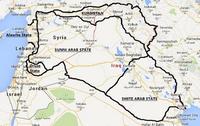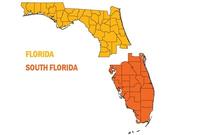-
Connecticut and Kansas implement next-gen 911 system
Connecticut and Kansas are both currently installing the next generation of 911 telephone systems (NG911) in different cycles, but both are seeing the added benefits of the evolved system.NG911 will allow both states to offer the services of up-to-the-second multimedia information, including cell phone texts and video, as responders rush to an emergency site.
-
-
Los Angeles mayor says fire response times are too slow
Citing new research and statistics, Los Angeles Mayor Eric Garcetti claimed that previous fire station response times “stunk” and that with a new program in place, the Los Angeles Fire Department (LAFD) would be able to cut those responses considerably. The new FireStat program had revealed that the responses were considerably slower than what former Fire Chief Brian Cummings had been reporting.
-
-
Dzhokhar Tsarnaev’s friend convicted of lying to police investigating Boston Marathon bombing
Robel Phillipos, 21, of Cambridge, Massachusetts, a friend of Boston Marathon bomber Dzhokhar Tsarnaev, was convicted yesterday (Tuesday) of lying to police during the investigation of the 2013 attack. Phillipos was convicted of two counts for lying about being in Tsarnaev’s dorm room three days after the attack, at the same time that two other friends removed a backpack containing fireworks and other related evidence from the room. The three friends went to Tsarnaev’s room while federal and local law enforcement units were engaged in an intense search for the bombing suspects.
-
-
Court orders reinstatement of CBP terminated employee, saying termination was unjustified
Customs and Border Protection(CBP) agent Thomas G. Wrocklage has triumphedin his effort to return to work following a federal appeals court’s disagreement with how the Merit Systems Protection Board(MSPB) decided his removal appeal. Wrocklage disagreed with his supervisors about a $300 fine issued to an elderly couple returning from a trip to Canada for failure to disclose to a second border officer that they had with them some fruits and vegetables.
-
-
Legal framework needed to govern soon-to-arrive autonomous killer drones: Experts
With about 8,000 unmanned aircrafts and roughly 12,000 unmanned ground vehicles, the U.S. military boasts the world’s largest drone arsenal, followed by Israel, with China, Europe, India, and Russia in the second tier. Unmanned aerial vehicles (UAV) will pose a challenge to current international laws of warfare since someday, and sooner rather than later, they will be able to act autonomously – and kill autonomously. The international community has yet to adopt special laws to govern the use of drones in combat.
-
-
Peekaboo, I see you: Government authority intended for terrorism is used for other purposes
The Patriot Act continues to wreak its havoc on civil liberties. Section 213 was included in the Patriot Act over the protests of privacy advocates and granted law enforcement the power to conduct a search while delaying notice to the suspect of the search. Known as a “sneak and peek” warrant, law enforcement was adamant Section 213 was needed to protect against terrorism. But the latest government report detailing the numbers of “sneak and peek” warrants reveals that out of a total of over 11,000 sneak and peek requests, only fifty-one were used for terrorism. Yet again, terrorism concerns appear to be trampling our civil liberties.
-
-
Legality of mandatory quarantine of asymptomatic individuals questioned
Roughly three decades ago, patients in New York were forced into isolationafter an outbreak of tuberculosis, and about seventy years before that, an influenza pandemic led to mass quarantine in major American cities. Today, fear of an Ebola outbreak in the United States has led some states to mandate quarantine of individuals suspected of having the Ebola virus, but legal analysts question the legality of such measures.
-
-
Tunisia’s Islamist party Ennahda concedes defeat in Sunday’s elections
Tunisia’s Islamist Ennahda party, the first Islamist movement to come to power in an Arab country in the wake of the 2011 Arab Spring turmoil, has conceded defeat in Tunisia’s general elections held on Sunday. Ennahda’s main secular rival, the Nidaa Tounes party, is certain to emerge as the strongest force in the new parliament. Unlike the Muslim Brotherhood in Egypt, Ennahda did not try to turn Tunisia into an Islamist state and did not use its parliamentary majority to exclude non-Islamists from power. It opted for a coalition government with two secular parties, and participated in the writing of a new constitution which is regarded as the most progressive in the Arab world. Its mishandling of the economy, and a general anti-Islamist sentiment in Tunisia, doomed its hope of retaining power.
-
-
A framework for destroying ISIS and creating stability in the Middle East

In responding to the barbarism of ISIS, the United States must develop and articulate a political strategy that keeps America out of an inter-ethnic civil war, relies on local Arab armies to defeat ISIS, reduces Iran’s influence in the region, strengthens Israeli security, and prevents terrorist groups like ISIS from ever again establishing a political or geographic foothold in Syria and Iraq. The current U.S. policy of arming the overwhelmingly Shiite Arab Iraqi government army, the Iraqi Kurdish Peshmerga forces, and the hodgepodge Free Syrian Army is not going to achieve these goals. Instead, the United States should pursue a strategy based on diplomatically recognizing the already-existing partition of the region into its natural divisions — the “Five State” partition. The Five State approach aims to re-partition the two failed states of Syria and Iraq into more stable and cohesive states which will exclude Iranian influence, provide a stable and potentially powerful Sunni Arab state that can ally with the pro-Western Sunni Arab states, and accommodate the security concerns of the major regional non-Arab powers, Israel, Turkey, and the concerns of neighboring Russia.
-
-
Vet alleges supervisors at CBP IA ignored his disability: “He Just needed an ounce of compassion” -- Pt. 1

J. Gregory Richardson, a Lieutenant Commander in the Navy (Retired) who injured his back on his last deployments, says that when he served a Senior Security Analyst t Customs and Border Protection Internal Affairs (CBP IA) from 2006 until 2013, supervisors there repeatedly ignored his status as a disabled veteran despite extensive documentation of his medical condition. A fellow CBP IA employee agrees: “he (Richardson) just needed an ounce of compassion” from his supervisors, she said. This veteran never received an ounce of compassion, however, or any other consideration or accommodation. He appears to have been set adrift in the complexities of the federal employment procedures and policies process.
-
-
Building a network of canals to save Boston from sea level rise
By the end of the century, sea-level rise on the U.S. east coast is predicted to reach six feet, so city planners in Boston recently met to discuss how to live with rising waters along the city’s historic streets. One suggestion is to turn Boston’s Back Bay district into a network of canals. The canals would alleviate sea-level rise by draining water into lower-lying back alleys and some main streets, but the proposed plan would have to contend with freezing temperatures in the winter.
-
-
South Florida wants to secede from Florida over sea level rise

When people talk of “secession” in the United States they typically have Texas, Vermont, or the former Confederate states in mind, and the reasons for driving secession typically have to do with politics or money. Not anymore. The city of South Miami earlier this month passed a resolution which called for southern Florida to secede from the rest of the state, citing climate change as the reason. There are many differences between north and south Florida: South Florida is largely urban and politically tends to lean left, while the north is mostly rural and much more conservative. If south Florida reminds people of New York, the Florida panhandle resembles Alabama. Then there is this: The northern part of the state is, on average, 120 feet above sea level, but much of the southern section averages only fifteen feet above sea level. South Floridian say that the state government in Tallahassee ignores the perils of sea level rise, which are particularly acute in south Florida, so the time has come to separate from the aloof north.
-
-
First New York Ebola case confirmed
Dr. Craig Spencer, who had been working with Doctors without Borders in Guinea and treating Ebola patients before returning to New York City on 14 October, was taken to Bellevue Hospital yesterday (Thursday) and placed in strict isolation. Tests later determined that he had contracted the Ebola virus. Spencer is the first New Yorker diagnosed with Ebola. As if in anticipation of a case like Dr. Spencer’s, more than 5,000 healthcare workers in New York participated in a three-hour session earlier this week to prepare for Ebola should an infected person arrive in the New York City region.
-
-
China steals confidential data on the vulnerabilities of major U.S. dams

The U.S. Army Corps of Engineers’ National Inventory of Dams(NID) contains critical information on the vulnerabilities of the roughly 8,100 major dams in the United States. Between January and April 2013, U.S. intelligence agencies spotted several attempts by China’s People’s Liberation Army (PLA) cyber-espionage unit to access the NID database and steal its contents. On Monday, National Weather Service (NWS) hydrologist Xiafen “Sherry” Chen, 59 was arrested for allegedly breaching the NID security and stealing confidential data on U.S. dam vulnerabilities. The Justice Department has raised the alarm over multiple attempts by China to steal data on U.S. critical infrastructure through individuals with privileged access to confidential databases.
-
-
Law enforcement: Apple iOS 8 software would hinder efforts to keep public safety

With its new iOS 8 operating software, Apple is making it more difficult for law enforcement to engage in surveillance of users of iOS8 smartphones. Apple has announced that photos, e-mail, contacts, and other personal information will now be encrypted, using the user’s very own passwords — meaning that Apple will no longer be able to respond to government warrants for the extraction of data.
-
More headlines
The long view
What Does Netflix’s Drama “Adolescence” Tell Us About Incels and the Manosphere?
While Netflix’s psychological crime drama ‘Adolescence’ is a work of fiction, its themes offer insight into the very real and troubling rise of the incel and manosphere culture online.
A Shining Star in a Contentious Legacy: Could Marty Makary Be the Saving Grace of a Divisive Presidency?
While much of the Trump administration has sparked controversy, the FDA’s consumer-first reforms may be remembered as its brightest legacy. From AI-driven drug reviews to bans on artificial dyes, the FDA’s agenda resonates with the public in ways few Trump-era policies have.
The Center Can Hold — States’ Rights and Local Privilege in a Climate of Federal Overreach
As American institutions weather the storms of executive disruption, legal ambiguity, and polarized governance, we must reexamine what it means for “the center” to hold.
How to Reverse Nation’s Declining Birth Rate
Health experts urge policies that buoy families: lower living costs, affordable childcare, help for older parents who want more kids
Foundation for U.S. Breakthroughs Feels Shakier to Researchers
With each dollar of its grants, the National Institutes of Health —the world’s largest funder of biomedical research —generates, on average, $2.56 worth of economic activity across all 50 states. NIH grants also support more than 400,000 U.S. jobs, and have been a central force in establishing the country’s dominance in medical research. Waves of funding cuts and grant terminations under the second Trump administration are a threat to the U.S. status as driver of scientific progress, and to the nation’s economy.
The True Cost of Abandoning Science
“We now face a choice: to remain at the vanguard of scientific inquiry through sound investment, or to cede our leadership and watch others answer the big questions that have confounded humanity for millennia —and reap the rewards.”
